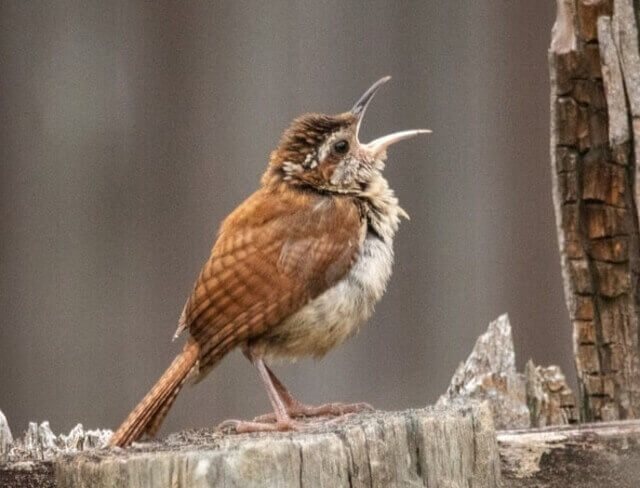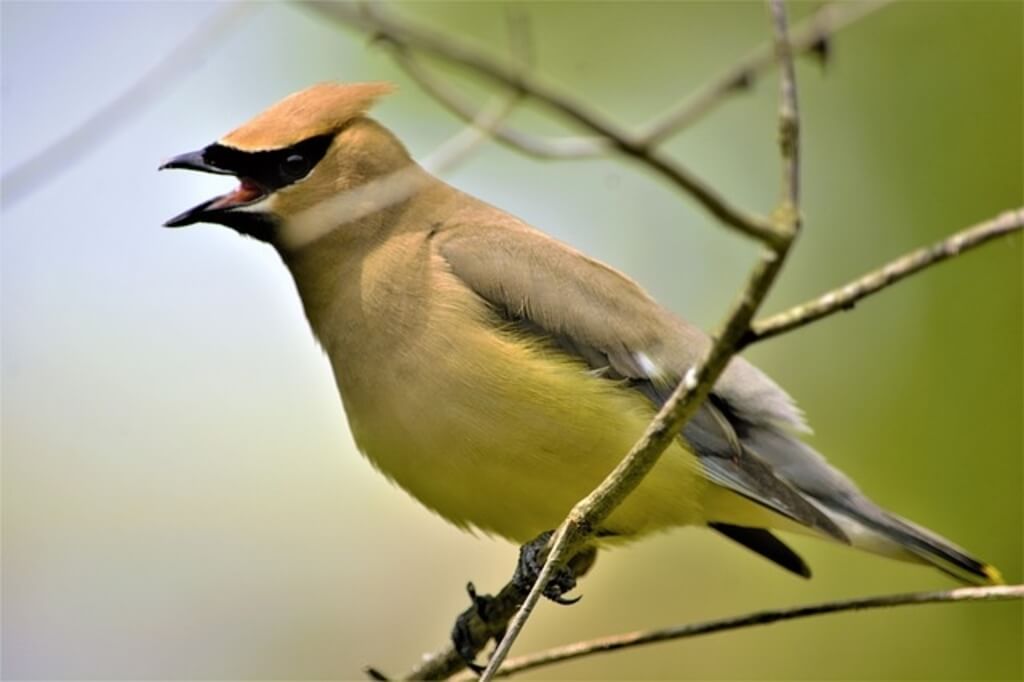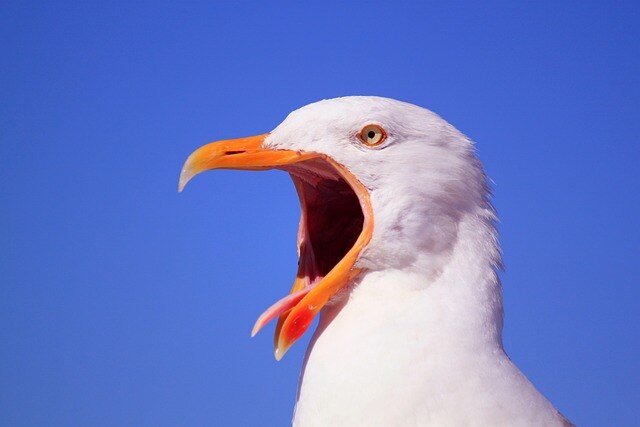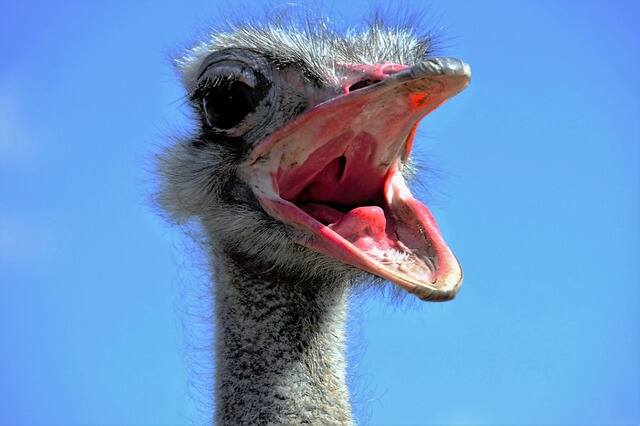Are you aware that birds yawn? Yes, you read that right! In this article, we will explore the fascinating world of avian yawning. We’ll delve into the question, “Do birds yawn?” and uncover the reasons behind this unique behavior. Additionally, we’ll unravel the potential benefits of yawning for our feathered friends. Let’s embark on this captivating journey!
Table of Contents
- 1 Key Takeaways
- 2 Do Birds Yawn?
- 3 What Is Yawning?
- 4 What Causes A Bird To Yawn?
- 5 What Types Of Birds Yawn?
- 6 How Often Do Birds Yawn?
- 7 Why Do Birds Yawn So Much?
- 8 Why Do Birds Yawn When You Rub Their Ears?
- 9 Is Yawning For Birds Contagious To Other Birds?
- 10 The Yawning Behavior of Various Bird Species
- 11 Frequently Asked Questions
- 11.1 Is it normal for birds to yawn?
- 11.2 Do pigeons yawn explain?
- 11.3 Do crows yawn?
- 11.4 Do lovebirds yawn?
- 11.5 Why does my lovebird keep yawning?
- 11.6 Do cockatiels yawn?
- 11.7 Do budgies yawn?
- 11.8 Why is my budgie yawning so much?
- 11.9 Do African Gray yawn?
- 11.10 Do baby birds yawn?
- 11.11 Why does my bird yawn when I pet him?
- 12 Author
Key Takeaways
- Birds do indeed yawn, just like humans and various animal species.
- Yawning in birds is linked to reasons such as sleepiness, fatigue, and cooling down the brain through selective brain cooling.
- Yawning is contagious among birds, and when one bird in a flock yawns, others often follow suit.
- Different bird species may yawn for various reasons, such as thermoregulation or communication.
- Understanding avian yawning sheds light on their behavior and how they cope with various situations.

Do Birds Yawn?
Yes, birds do yawn. From parrots to penguins, they all yawn just like us! In fact, most of the time they yawn for the same reasons as we do, when they’re sleepy, fatigued or bored.
They will also yawn as a way of stretching the jaw muscles and getting rid of any built-up tension, which helps to reduce stress and fatigue. Birds also use yawning as a way to cool down the brain through a thermoregulatory mechanism called selective brain cooling.
What Is Yawning?
Yawning is a reflex that functions to rapidly increase lung volume and to exchange the air in respired gas with fresh gas. Yawning is the involuntary opening of the jaw, accompanied by an involuntary deep inhalation, followed by exhalation. Occasionally this may be accompanied by an involuntary stretching of the body.
- Yawning may be triggered by system arousal (yawning on waking or before exercise).
- When levels of system arousal fall (before sleep).
- Yawning may also be triggered by contagious stimuli (seeing someone else yawn).
What Causes A Bird To Yawn?
Sleepiness and overheating are the two main reasons that birds yawn. When a bird is bored or sleepy, it yawns to get rid of the sleepiness and to stay alert. When a bird is overheated, it yawns to cool down its brain through a thermoregulatory mechanism called selective brain cooling.
What Types Of Birds Yawn?
Yawning is a universal behavior that humans and birds share. For example, every species and type of bird from tiny hummingbirds to large eagles yawns. Some birds, such as parrots, are known for their loud and exaggerated yawns.
How Often Do Birds Yawn?
Studies have shown that birds yawn an average of 20 times per day! Scientists speculate that this is a form of thermoregulation. Birds, like humans, produce heat from the conversion of food to energy.
In order to regulate their body temperature and prevent overheating, they open their beaks wide and exhale warm air into them before breathing in cool air.
Why Do Birds Yawn So Much?
Birds yawn so much because it helps them to cool down. When a bird opens its mouth wide, the air that comes in contact with its tongue and palate is cooled, which helps to reduce the bird’s body temperature. They also yawn because it’s a way to relieve stress and fatigue.
Why Do Birds Yawn When You Rub Their Ears?
Birds yawn when you rub their ears because it feels good. The feathers on their heads are very soft and when you rub them, it relaxes them. This sensation is calming to them and helps them to fall asleep.
Is Yawning For Birds Contagious To Other Birds?
Yawning is contagious for birds. Yes, it is contagious for birds to yawn. It seems to be an innate response, but most birds react when other birds yawn. When one bird yawns, the rest of the flock will often follow suit soon after.
The Yawning Behavior of Various Bird Species
- Pigeons: Pigeons yawn frequently, often as a means to cool down their bodies.
- Crows: Yawning in crows serves multiple purposes, including temperature regulation and communication within the group.
- Lovebirds: Lovebirds yawn when happy, anxious, tired, or sleepy. Yawning can be contagious among them, leading to group yawning.
- Cockatiels: Yawning in cockatiels is usually a sign of tiredness or boredom.
- Budgerigars (Budgies): Budgies yawn when they want to rest or go to sleep, particularly after waking up in the morning or when they are very tired.
- African Grays: Yawning in African Grays is often a sign of being tired or bored due to a lack of stimulation.
- Parrots: Parrots frequently yawn when they are tired or happy and relaxed, especially when receiving attention.
- Carolina Wrens: Yawning in Carolina Wrens may serve various purposes, but it can also be related to tiredness or thermoregulation.
- Baby Birds: Baby birds yawn to increase their oxygen intake, similar to mammals.
- Sparrows: Sparrows may yawn for reasons that vary among individuals, including fatigue or temperature regulation.
- Blue Jays: Yawning in Blue Jays may be linked to temperature regulation and stress relief.
- Robins: Robins yawn to help reduce stress, fatigue, and body temperature regulation.
- Chickadees: Yawning in Chickadees can be associated with relaxation and thermoregulation.
- House Finches: Yawning in House Finches helps them reduce stress and cool down their bodies.
- American Goldfinches: Yawning in American Goldfinches serves to relieve stress and fatigue, as well as regulate body temperature.
Frequently Asked Questions
Is it normal for birds to yawn?
Yes, it is very normal for birds to yawn. Birds yawn for many reasons. Some birds yawn to cool down their body temperature. Other birds yawn to clean their beaks. And some birds yawn to show their excitement, boredom or fatigue.
Do pigeons yawn explain?
Pigeons yawn frequently and seem to do it as a way to cool down. Researchers believe that the yawn may serve as a form of thermoregulation, helping the bird to regulate its body temperature.
Do crows yawn?
The yawning behavior of crows has been a topic of debate for centuries. Some believe that crows yawn to cool off or to refresh their air supply, while others believe that crows yawn to show dominance or to communicate with other crows. However, the true purpose of crows’ yawning remains a mystery.
Do lovebirds yawn?
Lovebirds are social birds and will yawn when they are happy, anxious, tired or sleepy. The sight of another bird yawning, or yawning in front of them can be contagious, and you may end up with a chorus of yawning lovebirds.
If a lovebird yawns when hungry or bored, he may not have enough things to do in his cage. To cure this, provide your lovebird with toys in his cage like hanging toys, bell toys that he can ring, ladders and swings on which he can climb and play, and cardboard boxes.
New toys should be rotated into his cage regularly, like every week or two weeks so that he doesn’t get bored with them.
Why does my lovebird keep yawning?
Frequent yawning can be a sign of stress (for example, if its cage is in a busy area) and the bird is trying to calm itself. If you have a lovebird that is yawning repeatedly or more than usual, it could be a sign of illness related to the crop, respiratory system or digestive tract.
Do cockatiels yawn?
Cockatiel are often considered to be among the most adorable and cuddly birds in the world. However, like many other animals, cockatiel birds also have a natural tendency to yawn.
Yawning is a reflex action that many animals use to cleanse their throats of mucus and other debris. In cockatiel birds, yawning is typically seen as an indicator of tiredness or boredom.
Do budgies yawn?
Budgies yawn when they want to rest or go to sleep. Their tiny beaks open wide, displaying the pink insides of their mouth, in a way that looks like a human yawn. Especially after waking up in the morning or when they are very tired in general, budgies typically yawn.
Why is my budgie yawning so much?
Budgies yawn when they are tired, but if your budgie is yawning a lot, it could be a sign of illness. The most common causes of excessive or repeated budgie yawns are:
- Inflammatory or infectious disease related to the crop.
- Respiratory system or digestive tract.
- Respiratory tract infections due to bacteria, viruses and yeast can cause symptoms like this.
Do African Gray yawn?
Yes they do! The majority of African Grays yawn when they are tired. The most common causes for the yawning in these birds is due to them not getting enough sleep or being bored with their environment.
African Grays need to be stimulated and entertained, but if there is nothing new in their surroundings, then it’s easy for them to get frustrated and just want to do something different, which can lead to boredom or fatigue.
Do baby birds yawn?
It is generally accepted that baby birds yawn in order to increase their oxygen intake. This is because yawning is one of the most common ways that mammals increase their oxygen intake.
Why does my bird yawn when I pet him?
Birds yawn when they are tired. When you pet a bird, you are providing a physical stimulus. This physical stimulus will make the bird relax, which triggers a reflex in the bird’s brain that causes them to yawn.





